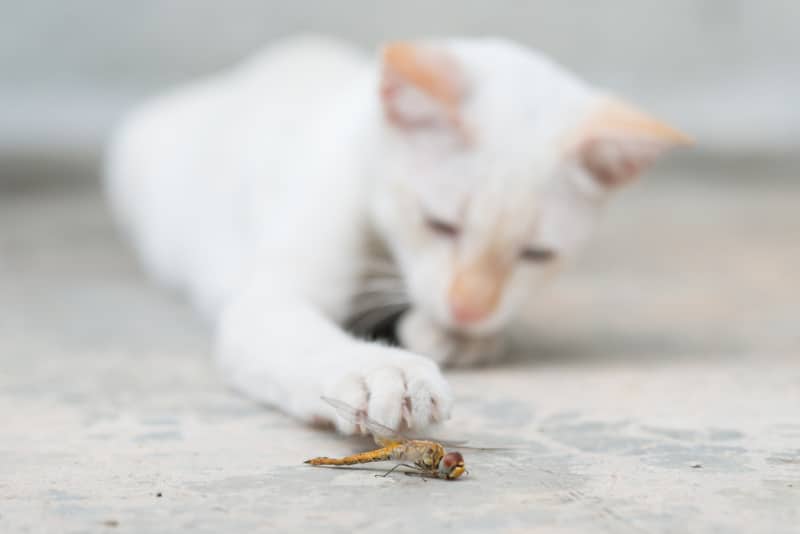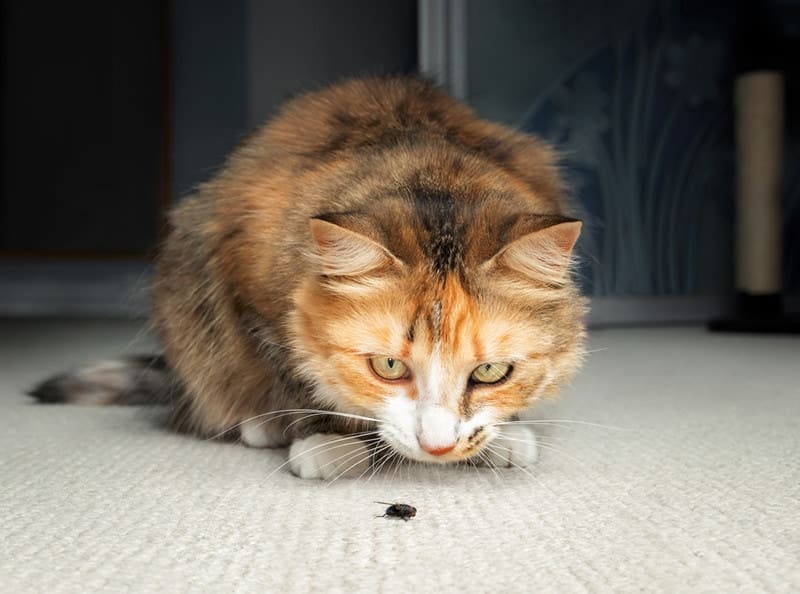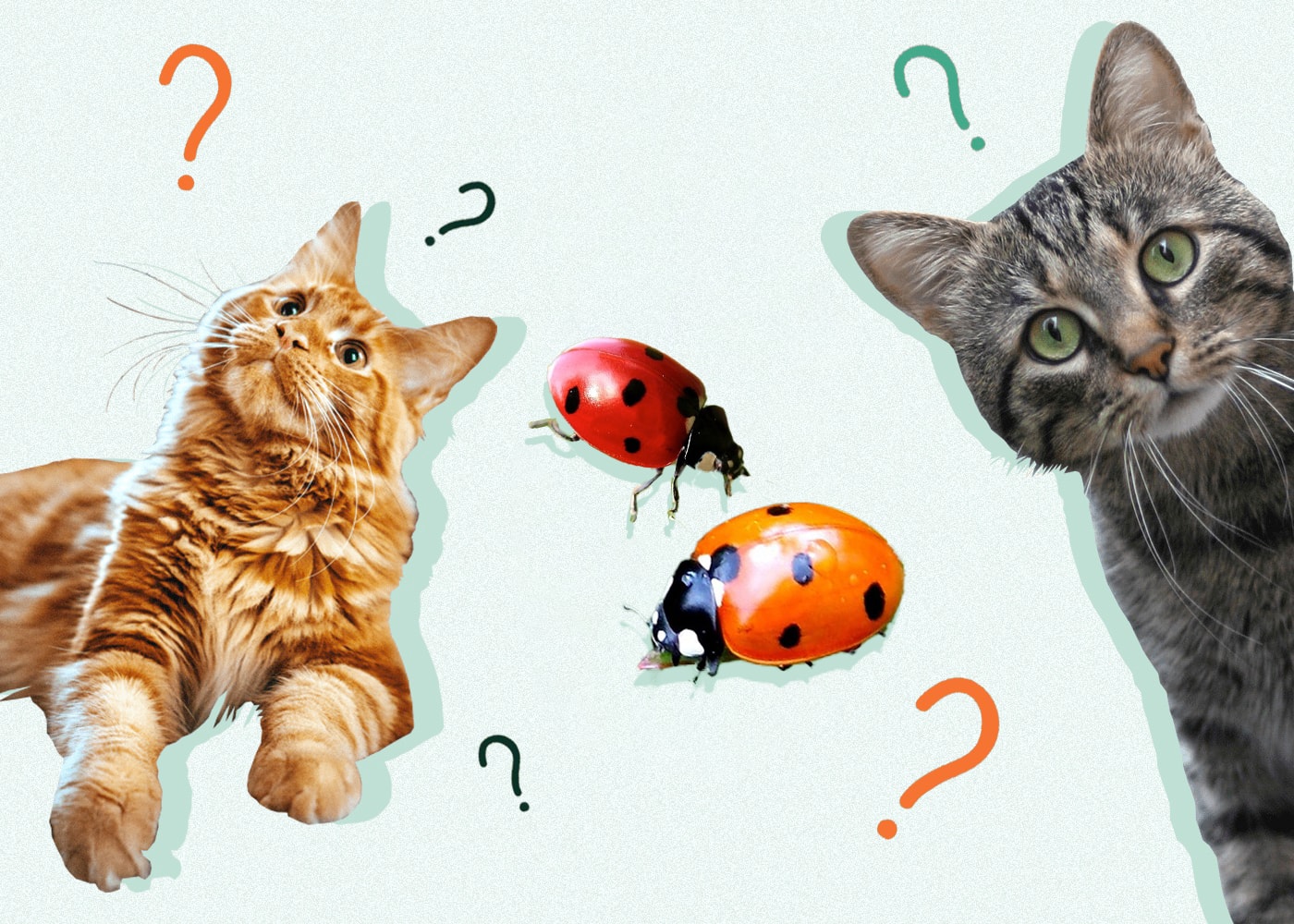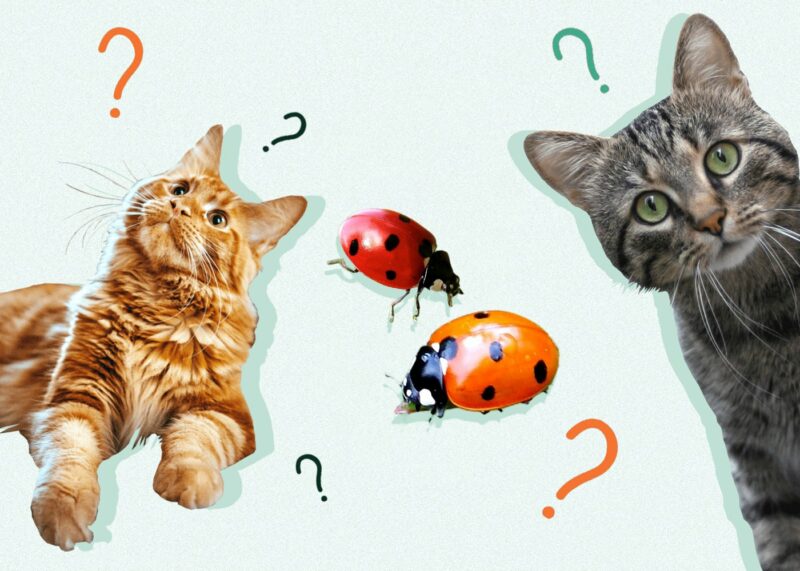Your kitten locks eyes on an unassuming fly. They wiggle their tail and slightly raise their hind legs in anticipation. Then suddenly, when the fly least expects it, they pounce and pin it down between their paws—snack time! At least, this is the story for some cats. Other domestic kitties may passively observe a swarm of flies and not bother to lift a claw.
Why do some cats love to hunt insects while others don’t? Also, given that certain bugs can harm cats, is it ever okay to let them kill and eat insects?
The short answer is that many bugs and insects are safe for cats to eat, but you should avoid letting them eat any that sting or bite or that are parasites. Keep reading to learn more!
Why Does My Cat Like to Eat Bugs?
Although the human-feline relationship dates back thousands of years, the modern cat isn’t totally domesticated. Thus, some feral cats that aren’t reliant on human companionship can survive on their own, while your house cat resting on the recliner would quickly perish if left to their own devices. Whether they’re feral or domestic, hunting and eating bugs is a natural instinct that most cats have retained at least somewhat, though some more than others. This explains why some cats lose their mind at the sight of a moth while others stay cuddled in their blankets.

Is It Okay for My Cat to Eat Bugs?
Insects are actually an excellent source of protein for your cat. However, they’re more likely to hunt for sport rather than survival if they’re receiving a balanced diet. Some bugs, like spiders and bees, can certainly harm your pet, so should you let them play with their prey?
You certainly do need to watch your cat around insects. Stinging or biting insects, such as wasps, hornets, scorpions, and spiders, are off-limits. Not only can they cause painful bites and swelling, but some cats are also allergic to them like humans are. If they’re stung and experience an anaphylactic reaction, rush them to the vet immediately.
- Swelling
- Respiratory distress
- Vomiting
- Diarrhea
- Facial swelling
- Restlessness
- Seizures
Of course, parasites like fleas and ticks are also harmful but less likely to cause a severe immediate reaction. Talk to your vet about an appropriate form of flea prevention for your cat, depending on their age. Fleas are uncomfortable, and their saliva can cause allergic dermatitis in your cat. Also, if your cat ingests fleas, they may become infected by tapeworms and will need a dewormer.
As long as the bug doesn’t sting or bite and isn’t a parasite, it’s generally safe for your cat to play with and eat. This includes insects like roaches, flies, gnats, butterflies, crickets, and moths. Note that some caterpillars can be poisonous, so don’t let your cat play with or eat them, just to be safe.
Are Bugs Healthy for Cats?
While cat treats and larger prey are more nutritionally rich, cats do glean a small amount of protein from insects. Felines are obligate carnivores that by definition, require animal protein to survive. Insects are a form of animal protein, but it would take more than they could possibly catch and eat to meet your cat’s dietary needs. If you find your cat swatting flies, you should know that they’re not starving as long as you’re feeding them an appropriate amount of a balanced diet. More than likely, your cat simply enjoys chasing insects for sport.

 Conclusion
Conclusion
It’s no secret that cats love to chase things, and insects are often more entertaining than feather toys and laser beams. Eating insects can actually provide them with a little protein snack, not to mention control the pest population in your home. While most bugs are safe to play with, be sure to guard your cat against parasites and insects that bite or sting. If your cat shows signs of an anaphylactic reaction, such as swelling or respiratory distress, take them to the vet immediately.
- Related Read: How to Keep Ants Out of Cat Food
Featured Image Credit: Vinicius R. Souza, Shutterstock











